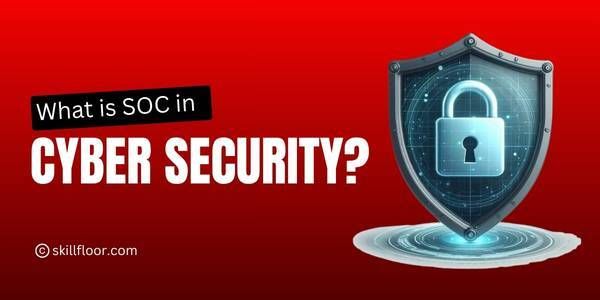Ethical Hacking Application Uses
Learn about ethical hacking applications, and tools used by cybersecurity professionals to test and secure systems, networks, and web applications against vulnerabilities and cyberattacks.

Nowadays cybersecurity is more important than ever. As technology changes, hackers are finding new ways to misuse weaknesses in computer systems, networks, and applications. Ethical hacking helps prevent these attacks by finding vulnerabilities before the bad hackers can use them. In this blog, I will explain what ethical hacking applications are, how they work, and why they are important for keeping our systems safe.
What Are Ethical Hacking Applications?
Ethical hacking applications are tools used by cybersecurity professionals to test the security of systems, networks, and websites. The goal is to find vulnerabilities—weak spots in the system—before cybercriminals can take advantage of them. These tools help ethical hackers (who are also called white-hat hackers) find and fix security issues, making sure that everything is secure.
In simple terms, these applications are like security detectives—they search for weaknesses and flaws in a system, just like a burglar might look for an unlocked window to break into a house. But instead of exploiting those weaknesses, ethical hackers use this knowledge to improve security.
Ethical hacking applications can be used in many different ways. Some tools focus on network security, while others are specialized for web application security, penetration testing, or password cracking. These applications are essential for companies, organizations, and even governments to stay ahead of cybercriminals.
Some Common Ethical Hacking Applications Include:
-
Metasploit: A popular tool used for finding and testing vulnerabilities in systems.
-
Burp Suite: Used for testing the security of web applications, helping to find issues like cross-site scripting (XSS) or SQL injection.
-
Nmap: A network scanner used to identify devices and services connected to a network, allowing hackers to detect potential weaknesses.
-
Wireshark: A network protocol analyzer used to monitor network traffic and identify suspicious activities.
-
John the Ripper: A password cracking tool that helps identify weak or easily guessable passwords.
-
Nikto: A web server scanner that helps identify vulnerabilities in web servers, including outdated software versions and configuration issues.
-
Aircrack-ng: A tool used for testing the security of wireless networks, helping to identify weak encryption or unauthorized access points.
-
OWASP ZAP (Zed Attack Proxy): A tool specifically designed for finding security vulnerabilities in web applications, often used for automated penetration testing.
These are just a few examples of the many tools available to ethical hackers. Each tool has a specific function that helps them identify, exploit, and fix security weaknesses.
What Is an Ethical Hacking Application?
An ethical hacking application is a program or tool that helps ethical hackers test and secure systems. These applications are designed to find problems or weaknesses that could lead to an attack. Some applications are specialized for scanning networks, while others are built to test websites or software for vulnerabilities.
Ethical hacking applications are used to find flaws in digital infrastructures that could allow hackers to break into systems. These flaws can include things like outdated software, weak passwords, or incorrect configurations. By identifying and fixing these weaknesses, ethical hackers help prevent unauthorized access and data breaches.
Some ethical hacking applications are more general-purpose, like Nmap (used to scan networks for devices) or Wireshark (used to monitor network traffic). Others, like Burp Suite or OWASP ZAP, are designed specifically to test the security of web applications by looking for common vulnerabilities such as cross-site scripting or SQL injection.
Major Ethical Hacking Applications
Penetration Testing Tools
Penetration testing tools are used by ethical hackers to simulate cyberattacks and check if systems, networks, or applications are vulnerable. The goal is to find weaknesses before real hackers do.
How They Work:
Tools like Metasploit and Core Impact help ethical hackers test how secure a system is by simulating attacks. These tools try to find security holes and exploit them to see what could happen if a hacker attacks the system.
Benefits:
-
Identify Weaknesses: They help find security flaws before attackers can use them.
-
Realistic Testing: These tools simulate real-world attacks, which gives a better idea of how safe a system is.
-
Improves Security: Once weaknesses are found, companies can fix them to make their systems stronger.
-
Meets Regulations: Many industries require these tests to stay compliant with security standards.
Vulnerability Scanners
Vulnerability scanners automatically search systems or networks for known security problems. They help find weaknesses that could be used by hackers.
How They Work:
Tools like Nessus, OpenVAS, and Qualys scan systems for vulnerabilities, like outdated software or weak settings. They compare what they find with a list of known vulnerabilities and then report any issues they discover.
Benefits:
-
Automatic Scanning: These tools can check large networks quickly, saving time.
-
Comprehensive Checks: They look for a wide range of issues, from old software to weak security settings.
-
Proactive Protection: Regular scans help prevent security breaches before they happen.
-
Time-Saving: They provide detailed reports, so security teams can focus on fixing problems, not searching for them.
Network Monitoring Tools
Network monitoring tools are used to watch network activity and capture data. Ethical hackers use them to see what’s happening on the network and spot potential security issues.
How They Work:
Wireshark and Tcpdump capture and analyze network traffic in real time. They show what data is moving through the network, which can help hackers find suspicious activities like unauthorized access or hacked data.
Benefits:
-
Watch Network Activity: These tools let you monitor your network and catch issues as they happen.
-
Detailed Data: They provide detailed information about what’s happening on the network, which helps identify problems.
-
Detect Attacks Early: They can catch signs of an attack, such as unusual traffic or data being stolen.
-
Optimize Network Performance: Besides spotting security flaws, they help improve network efficiency by identifying bottlenecks.
Web Application Security Tools
Web applications are a target for hackers because they are accessible online. Tools like Burp Suite and OWASP ZAP are used to test the security of websites and web apps to find weaknesses.
How They Work:
These tools scan websites for common security issues like SQL injection (when attackers insert harmful code into a website’s database) or XSS (cross-site scripting) (where hackers inject malicious code into websites). The tools simulate attacks to find vulnerabilities in the web application.
Benefits:
-
Test Websites: They focus on finding problems specific to websites and web applications.
-
Spot Common Attacks: These tools check for issues like SQL injections and XSS that hackers often use to break into websites.
-
Automated Scanning: They automatically scan for vulnerabilities, speeding up the process.
-
Improved Security: By fixing the problems they find, companies can protect their websites from cyberattacks.
Password Cracking Tools
Password cracking tools help ethical hackers check if passwords are strong enough to prevent hackers from guessing them easily.
How They Work:
John the Ripper and Hydra try to guess passwords by using different methods like brute force (trying every possible combination) or using lists of common passwords. Ethical hackers use these tools to find weak passwords that could let hackers in.
Benefits:
-
Check Password Strength: These tools help test how hard it is to crack passwords.
-
Teach Better Security: They help companies teach their employees to create stronger passwords.
-
Prevent Unauthorized Access: By finding weak passwords, they help stop hackers from getting into systems.
-
Meet Standards: Password security is important in many industries, and these tools help ensure that passwords are strong enough to meet requirements.
Wireless Network Testing Tools
Tools like Aircrack-ng are used to test the security of wireless networks (Wi-Fi). They help check if the Wi-Fi network is secure and if anyone could break into it.
How They Work:
Aircrack-ng monitors Wi-Fi networks and checks for weak encryption. It captures data packets sent over the network and tries to crack encryption codes to see if they are easy to break.
Benefits:
-
Check Wi-Fi Security: These tools ensure that Wi-Fi networks are secure from hackers.
-
Spot Weak Encryption: They can find networks using outdated or weak encryption methods that hackers can easily break.
-
Prevent Unauthorized Access: These tools help ensure that no one can access your Wi-Fi network without permission.
-
Wi-Fi Best Practices: Aircrack-ng provides recommendations for improving Wi-Fi security, such as using stronger passwords or encryption.
Malware Analysis Tools
Malware analysis tools help ethical hackers study viruses and other malicious software to figure out how they work and how to protect against them.
How They Work:
Tools like OllyDbg and IDA Pro allow ethical hackers to reverse-engineer malware. This means they break down the software to understand how it infects systems and how it spreads. Other tools like Cuckoo Sandbox let hackers safely run malware in a controlled environment to see what it does.
Benefits:
-
Understand Malware: These tools help understand how malware spreads and affects systems.
-
Create Defenses: They help develop better security to stop malware from getting into systems.
-
Respond to Attacks: Malware analysis helps security teams react quickly when malware is detected.
-
Improve Antivirus Protection: By understanding how malware works, companies can improve their antivirus software.
Phishing Simulation Tools
Phishing simulation tools like Gophish help companies test if their employees can recognize phishing attempts (fake emails designed to steal information).
How They Work:
Phishing simulation tools send fake phishing emails to employees to see if they click on malicious links or give away sensitive information. This helps companies understand how vulnerable their staff is to phishing scams.
Benefits:
-
Train Employees: These tools help employees recognize phishing emails and avoid falling for scams.
-
Measure Vulnerability: They show how many employees fall for phishing attacks, helping companies improve security.
-
Build Awareness: Regular phishing tests can help create a culture of awareness about security in the workplace.
-
Reduce Risk: Phishing is a common way that hackers get into systems, so these tools help lower the risk of an attack.

Advantages of Ethical Hacking Applications
Ethical hacking applications offer several important advantages:
1. Finding Problems Early
These tools help businesses find security flaws before hackers can use them. By detecting weaknesses early, companies can fix them before any real harm is done.
2. Compliance with Security Standards
Many industries, like healthcare or finance, have strict rules about how sensitive data should be protected. Ethical hacking tools help companies meet these requirements and avoid legal trouble.
3. Preventing Expensive Data Breaches
A cyberattack can cost a company a lot of money, both in terms of fixing the damage and losing customer trust. Using ethical hacking tools helps avoid these costly situations by identifying vulnerabilities early.
4. Thorough Security Testing
Ethical hacking applications test systems in depth. They simulate real-world attacks, so companies can see how well their systems would hold up against a hacker.
Disadvantages of Ethical Hacking Applications
While ethical hacking applications are very helpful, there are some challenges:
1. Complexity
Some tools can be complicated to use, especially for beginners. Ethical hackers need to have a good understanding of cybersecurity to interpret the results correctly and use the tools effectively.
2. Risk of System Disruption
Ethical hacking tools are designed to test systems, but sometimes they can cause problems, such as temporarily shutting down a website or service. This is why careful planning and testing are important.
3. Legal Issues
Ethical hackers must always have permission to test a system. Without the proper authorization, hacking—no matter the purpose—can be illegal. Ethical hackers must work within legal boundaries.
4. Cost of Tools
While some ethical hacking tools are free, others can be expensive. This can be a barrier for smaller businesses that want to test their security.
How Ethical Hacking Applications Work Today
Today, ethical hacking applications have become much more advanced and easier to use. Many of them are automated, which makes testing faster and more efficient. For example, cloud-based security tools allow ethical hackers to test cloud systems and services, which are becoming more popular.
Some modern ethical hacking applications now offer:
-
Real-time Monitoring: Many tools now allow businesses to monitor their systems in real-time, catching any new vulnerabilities as they arise.
-
Automated Reports: After testing, ethical hacking applications can automatically generate reports that are easy to understand, helping businesses take quick action.
Who Uses Ethical Hacking Applications?
Ethical hacking tools are used by many different types of people and organizations:
1. Large Companies
Big businesses with sensitive data, like banks or tech companies, use ethical hacking tools to protect their systems. They often perform regular tests to ensure their networks and applications are secure.
2. Government Agencies
Governments use ethical hacking applications to protect national security, including sensitive data related to defense, law enforcement, and other critical systems.
3. Small Businesses
Even small companies are starting to realize the importance of cybersecurity. Ethical hacking tools are now more affordable and accessible, so small businesses can also protect their systems from hackers.
4. Security Consultants
Independent security experts and companies that specialize in cybersecurity use ethical hacking applications to test their clients' security. They provide services like vulnerability assessments and penetration testing.
Ethical Hacking Application Uses
Ethical hacking applications are used in various ways:
-
Testing Networks: Ethical hacking applications scan networks for vulnerabilities. They look for open ports, outdated software, and weak spots that hackers might exploit.
-
Web Application Security: Tools like Burp Suite help test websites for security flaws like SQL injection or cross-site scripting (XSS), which can allow hackers to steal data.
-
Password Cracking: Ethical hacking tools like John the Ripper are used to check the strength of passwords, ensuring that they aren’t easy for hackers to crack.
-
Testing Wireless Networks: Applications like Aircrack-ng are used to test the security of Wi-Fi networks, ensuring that hackers can’t easily break in.
-
Malware Analysis: Some ethical hacking tools help analyze malware to understand how it works and how to defend against it.
Ethical hacking applications are essential tools in the fight against cybercrime. They help businesses and governments find vulnerabilities in their systems before hackers can exploit them. While these tools come with some challenges, such as complexity and cost, the benefits far outweigh the drawbacks. By using ethical hacking applications, organizations can improve their security and protect themselves from costly cyberattacks. Whether you're part of a large company or a small startup, understanding and using these tools can help keep your systems secure in an increasingly connected world.
































































